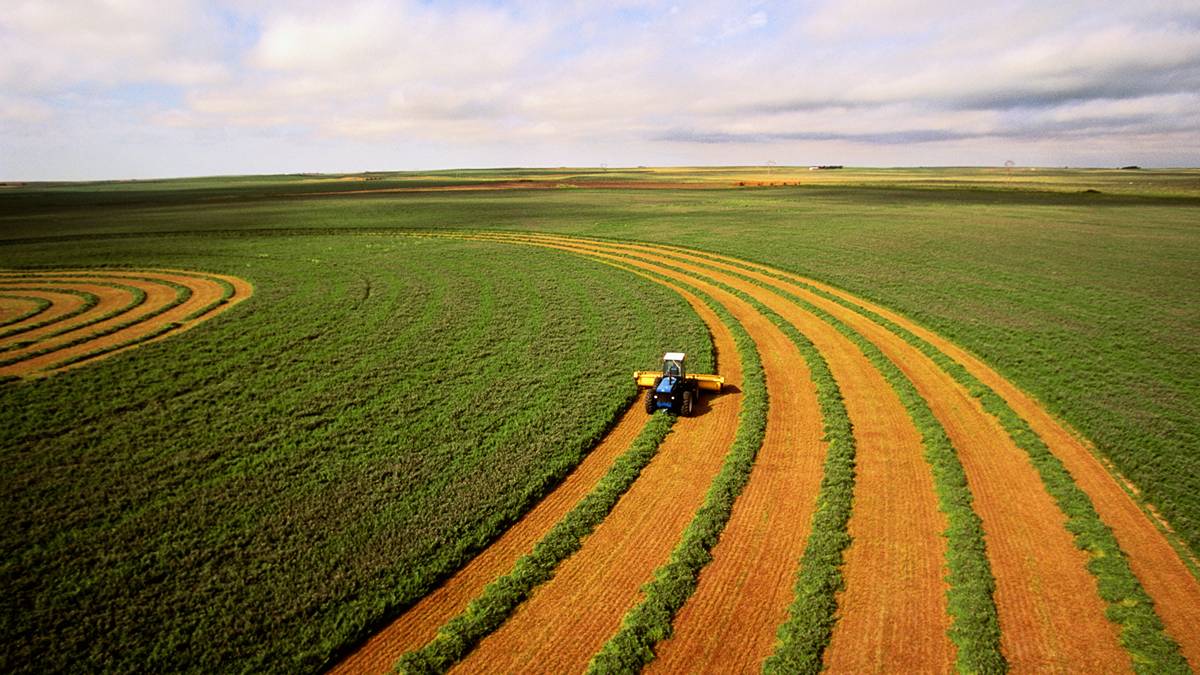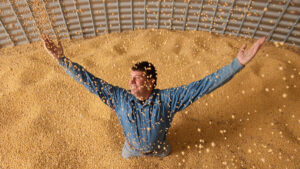Criterion: For resolute investors, the right ag stocks will yield a decent harvest

Image via Getty
- Our leading rural stocks produced disappointing September-end profit results
- Elders and Graincorp are striving for consistent, ‘through the cycle’ earnings
- S&P Global Ratings is not happy with Nufarm’s debt levels
For Graincorp (ASX:GNC) shareholders, a nice dividend will land in their accounts on December 12, just as Christmas household spending is amping up.
Elders (ASX:ELD) investors get their distribution on January 24, which is handy as well given householders are paying off the damage from Boxing Day sales.
The joy of these agri stocks is they operate on agrarian September 30 balance dates, so their dividends don’t coincide with the September-October-log jam when June 30 balance date companies dispense their largesse.
Overall, the latest – er – crop of ag sector profit reports show a discouraging pattern of revenue up, earnings down.
The sector bellwether, the diversified Elders reported a 56% net decline (to $45 million), with performance muted by lower livestock prices, lower crop protection margins and a “subdued client environment”
The country’s leading grain elevator and oilseed crusher, Graincorp reported 75% earnings decline to $62 million.
Graincorp’s record oilseed processing volumes were offset by a subdued winter crop, accentuated by WA’s 44% decline to 14.8 million tonnes.
A feature of both agrileaders is their commitment to ‘through the cycle’ earnings by smoothing profits over good and bad years by actively managing costs and – in the case of Graincrop – taking our crop protection insurance.
Elders has committed to growing earnings per share and earnings before interest and tax (ebit) by 5-10% and in November pulled the acquisitive lever with the cash-scrip purchase of Delta Agribusiness, which operates across 68 locations and 40 wholesale intermediaries.
Partly funded by a $246 million rights offer, the earnings-accretive purchase will add $835 million of revenue – nothing to sneeze at in the context of Elders turning over $3.13 billion in 2023-24.
Graincorp has committed to “through the cycle’ earnings before interest tax and depreciation (ebitda) of an ‘average’ $320 million and last year produced $246 million. Since 2020, Graincorp’s average ebitda has been $393 million, including the crop insurance costs.
The salient point is these companies are managing returns and not leaving it all to the weather gods – but it’s not always possible.
At the Top End, cattle herder Australian Agricultural Company (ASX:AAC) disclosed a 33% decline in operating profit to $20.2 million, despite a 17% revenue boost to $195 million.
Culprits were increased overseas beef supply and a 17% decline in the average price of wagyu – not that this translates to the supermarket shelves.
“Broad macro-economic dynamics don’t change overnight, so it’s no surprise that the market factors that influenced previous results continued into the first half of the year,” CEO David Harris said.
Indeed – you can’t control what you really can’t control.
Globally focused, crop protection and seed giant Nufarm (ASX:NUF) posted a $6 million net loss and a 29% ebitda decline, “due mainly to competitive market conditions which negatively impacted selling prices and margins.”
On Monday S&P Global Ratings cut its Nufarm outlook from stable to negative, citing “continued uncertainties over the timing of an agrochemical market recovery.”
Evidently, the firm reckons Nufarm has too much debt for such unpredictable earnings, which highlights the benefits of having a sound balance sheet in such as cyclical sector.
There’s no such issue at Graincorp, which has net cash of $349 million and has been dispensing special dividends and undertaking share buybacks.
Meanwhile the Bureau of Meteorology predicts above-average rainfall for most of eastern Australia in the December to February period and “within a typical range” for central parts.
If the weatherman’s right – and no guarantees there – that sounds like the seeds of a decent recovery.
This story does not constitute financial product advice. You should consider obtaining independent advice before making any financial decision
Related Topics
UNLOCK INSIGHTS
Discover the untold stories of emerging ASX stocks.
Daily news and expert analysis, it's free to subscribe.
By proceeding, you confirm you understand that we handle personal information in accordance with our Privacy Policy.








